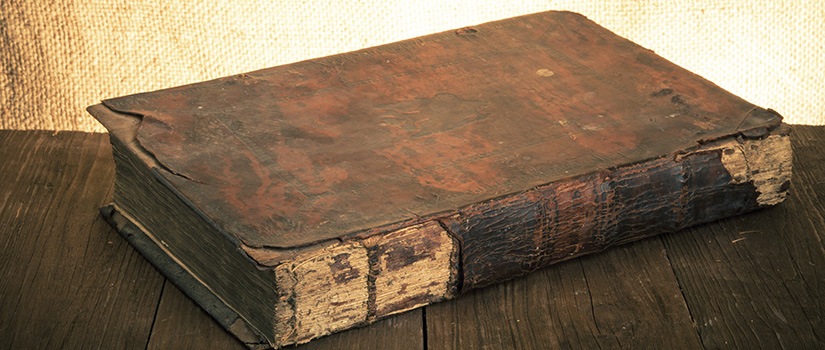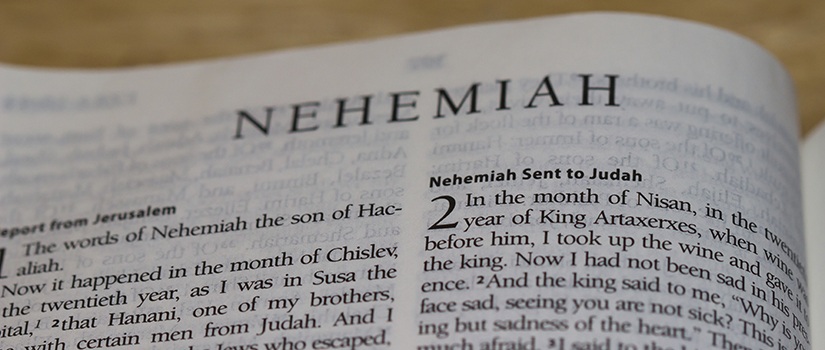A Messenger From A Forsaken God
Elijah The Tishbite #1
In this study, we will study the ministry of Elijah who was a special messenger sent from God during a time of apostasy of the nation of Israel. The study is taken from my book “Running In The Rain.” I spent 12 years gathering and processing the material for this study of Elijah.
We will put this study on in several stages. Following his ministry in the books of the Kings, from his introduction in 1 Kings 17:1, to him being taken away into heaven in a whirlwind on a chariot of fire pulled by horses from heaven, 2 Kings 2:11-12.
The ministry of Elijah left an impact on Israel which is still referenced in Israel to this day, so we hope you will follow with us as we retrace his footsteps in the Holy Scriptures.
This lesson #1 will include the following areas of his ministry.
1 Kings 16:29; 17:24
~~~~~~~~~~~~~~~~~Contents~~~~~~~~~~~~~~~~~~~~
1. Introduction To Elijah
2. The Secret Of His Fitness
3. Elijah’s Ministry
4. The Secret Of His Strength
5. The Completeness Of His Consecration
6. Running In The Rain
7. A Message For An Apostate People
8. The Brook Cherith
9. When The Brook Dries Up
10. God’s Sure Guardianship Over His Servants
11. The Widow Of Zarephath
12. The Promise To The Widow Of Zarephath
13. The Promise Fulfilled
~~~~~~~~~~~~~~~~~~~~~~~~~~~~~~~~~~~~~~~~~~~~~
(1.) INTRODUCTION TO ELIJAH:
Some say that Elijah is the grandest and most Romantic character that Israel ever produced. (Stanley, S. & P. P. 328) He appears suddenly and disappears miraculously, thus the imagination of Israel has played its part.
Some believe that he was Phineas, the grandson of Aaron, and others believe that he was an angel from heaven. The impression his ministry made upon the minds of the people reappeared again and again even after the passing of many centuries.
His ministry was reincarnated in John the Baptist. (Matthew 11:14) and some mistook Jesus for Elijah (Luke 9:8). His final appearance on earth was on the Mount Of Transfiguration.
Elijah’s physical appearance made a lasting impression on everyone who saw him. (1 Kings 18:7; 2 Kings 1:7-8) He was probably above the ordinary height and of great physical strength, clothed with a leather girdle about his loins, and a sheepskin cloak over his brawny shoulders, and long thick hair and beard streaming down his face and shoulders.
The “Tishbite” means “the converter,” and would fitly describe Elijah’s calling and work.
He may not have been an Israelite. He may have been an Ishmaelite or a heathen by birth, as God sent him to anoint a king in Syria. (1 Kings 19:15) To the people he would seem to come more directly from God. The human element was ever overshadowed by the divine.
(2.) THE SECRET OF HIS FITNESS:
Elijah had his constitutional strength and courage fostered by his rugged surroundings. Gilead was a wild unsettled country, compared to Ephraim and Judah. Instead of stately palaces and flourishing towns, it boasted tent villages and mountain castles. Desperate and frequent were the fights between the surrounding tribes.
A ROUGH MAN WAS NEEDED TO DO ROUGH WORK. You don’t send a clerk to dig trenches, move a rock, or build towers, and God needed some obstacles moved.
The Roman army sent men known as “woodcutters” ahead of the fighting forces. These men cut trees and cleared the way for the army, moving obstacles, and building bridges across streams and chasms. John the Baptist was a “divine woodcutter.” (Matthew 3:1-6; Mark 1:2-3; Luke 3:4-6).
Amid scenes of conflict, of loneliness, and probably of poverty, Elijah’s strong character was formed. This was not forged in an hour, or a day, but developed gradually among the mountains of Gilead.
Compare this with Moses in Midian watching sheep for forty years, with John the Baptist in the wilderness of Judaea, with the Apostle Paul in the desert of Arabia, and our Lord himself in the wilderness for forty days. The wilderness has been called, “God’s school for prophets.” God gives each servant the right training for the service appointed for him.
(3.) ELIJAH’S MINISTRY:
It Was A Ministry Of Silence.
How few are Elijah’s recorded words, and those few are utterances of less than a dozen occasions, all these to something less than a dozen people. He no sooner delivers his first brief message than he disappears, and for three years and a half Israel hears him no more.
He speaks for a moment: he is silent till God calls again. And when he reappears, it is for a day. with that one day’s ministry ended, he thrice more he reappears in history, but each time it is for a day, then he goes into the silent heavens, and save on the night of transfiguration, speaks no more to man.
It was a ministry of deeds. His words were few but explosive. Yet we will find he had a tender side also. (1 Kings 17:17-24) “He spake and it was done.” The works that he did bore witness of him.
How many of our sermons, full of sound and fury, leave not a trace behind them? But the almost silent Elijah accomplished the regeneration of his country.
(4.) THE SECRET OF HIS STRENGTH:
“…. As the Lord God of Israel liveth, …” (1 Kings 17:1)
He had an overpowering conviction that Jehovah lived, that he was near, that he was the God of this people, and that he would assert supremacy over all false gods. This is the secret of spiritual strength in all ages. The revelation of God’s presence and power is what all churches now need.
(5.) THE COMPLETENESS OF HIS CONSECRATION:
“…, Before whom I stand, …” (1 Kings 17:1)
This he said, not with a sense of God’s nearness only, nor of his favor, but to express that he was the Lord’s consecrated servant, through whom, and by whom, he might do what he willed.
Standing is an attitude of attention, of expectancy, of readiness. In Scripture servants are represented as all standing, looking towards the King, with loins girded, eyes intent, and ready to do his will. We cannot stand before the Lord until we have knelt before him in penitence and humility and prayer. This Elijah had done in Gilead. (James 5:16-18)
If we would have divine strength to use in the greatest conflict with sin around us, we must prove its miraculous energy in our private life.
In this study, we will meet, and study, some other people who played a part in his ministries, such as Ahab and Jezebel, a widow of Zarephath and her son, Obadiah, Ahab’s governor, and Elisha.
(6.) RUNNING IN THE RAIN:
1 Kings 18:44. And it came to pass at the seventh time, that he said, Behold, there ariseth a little cloud out of the sea, like a man’s hand. And he said, Go up, say unto Ahab, Prepare thy chariot, and get thee down, that the rain stops thee not.
45. And it came to pass in the meanwhile, that the heaven was black with clouds and wind, and there was a great rain. And Ahab rode and went to Jezreel.
46. And the hand of the LORD was on Elijah, and he girded up his loins and ran before Ahab to the entrance of Jezreel.
This story has thrilled me ever since I heard it as a small boy. What a sight this must have been!
Ahab, with the finest steeds in Israel, hitched to his chariot, their nostrils flaring, and straining every muscle in their bodies during the twenty miles back to Jezreel, yet could not keep pace with Elijah running before them in the driving rain.
We will come back to this later:
This story actually begins in the last part of chapter sixteen of 1 Kings when Ahab became king of Israel and married Jezebel, the daughter of a heathen king. Such a marriage was unprecedented in the kingdom of Israel and was the more fatal because of the character of the queen, recognized throughout scripture as the archetype of evil (Revelation 2:20).
She was reckless and licentious, fanatical and cruel, with a temper as vindictive as her will was resolute (1 Kings 21:7-16). Ahab became a mere tool in her hands and, by his marriage to the establishment of idolatry, was on his road to ruin.
The scriptures tell us that “Ahab did evil in the sight of the Lord above all that were before him.” (1 Kings 16:30).
He reared up altars to Baal in Samaria and worshiped the gods which Jezebel and her people served (1 Kings 16:32). Ahab allowed Jezebel to establish four hundred fifty prophets of Baal, and four hundred prophets of Ashere, another Canaanitish idol, after she had killed all the prophets of the Lord she could find (1 Kings 18:13).
In fact, Ahab provoked the Lord God of Israel to anger more than all the kings of Israel that were before him (1 Kings 16:33). Ahab represents the culminating point of the perversity of the kingdom of Israel. He fostered to an unprecedented degree the corruption of morals, private and public injustice, and idolatrous practices.
At this period of the national history of Israel arose the greatest of the prophets, Elijah, who well bore out his name, “The strength of God” and “My God is Jehovah.” and who was the faithful type of John the Baptist, the immediate forerunner of Jesus.
It was the unprecedented corruption of that age which necessitated such a mission as Elijah’s, and a mission armed with such credentials as his. The age demanded the messenger; the messenger must have credentials; the credentials could only be miraculous. If the one lamp (Israel) which cast a ray of light on the thick darkness of the world was not to be utterly extinguished, then God must send special messengers and arm them with special authority, and with super-human powers.
As always, God has reserved the greatest prophet for the worst age.
God’s man is always equal to the task before him.
(7.) A MESSAGE FOR AN APOSTATE PEOPLE:
We are introduced to Elijah in the first verse of chapter seventeen of First Kings.
1 Kings 17:1. “And Elijah the Tishbite, who was of the inhabitants of Gilead, said unto Ahab, as the Lord God of Israel liveth, before whom I stand, there shall not be dew nor rain these years, but according to my word.”
Elijah was born in Tishbe, in the wilderness district of Gilead, just east of the Jordan River. He, no doubt, was a wild looking man, “He was a hairy man, and girt with a girdle of leather about his loins.” (2 Kings 1:8).
We know nothing of his call from God. We first read of him as he fearlessly strides into the great hall of Samaria, into the very heart of idolatry, declares that the God of Israel still lives, and then gives Ahab the weather report.
Elijah proclaims to Ahab that there will be no rain, in fact, there will be no dew fall until he himself gives the word. His words probably did not strike fear into the heart of Ahab and he, no doubt, snickered and laughed it off as some crazy fool from the country, after all, the priests of Baal claimed absolute control over nature, including the clouds and rain.
But Elijah had declared, “There shall not be rain nor dew these years, but according to my word.” this was revealed in prayer. According to James 5:17 Elijah had prayed earnestly that it might not rain. The mystery of prayer is revealed in 1 John 5:14-15.
This man, Elijah, would affect all classes of the people.
They had shared the sin and therefore must share the penalty.
The loftiest are not beyond God’s reach, the lowest is not hidden from God’s notice. The tiny garden of the peasant was cursed, as well as the splendid park of the king.
National Sin Brings National Calamities.
The message, not to some, but to all, is,
“Repent and be converted, that your sins may be blotted out” (Acts 3:19).
It was to be “according to the word” of God’s servant. The change in the weather would be foreseen and foretold, not by false priests, but by the praying prophet.
The curse came because of sin, as had been proclaimed by the law.
(Leviticus 26:19-21; Deuteronomy 11:16-21, & 28:23-24)
It would be vain to cry, “O Baal, hear us” (1 Kings 18:26).
The curse would be removed only by repentance (1 Kings 18:39).
(8.) THE BROOK CHERITH:
1 Kings 17:2. And the word of the LORD came unto him, saying,
3. Get thee hence, and turn thee eastward, and hide thyself by the brook Cherith, that is before Jordan.
4. And it shall be, that thou shalt drink of the brook; and I have commanded the ravens to feed thee there.
5. So he went and did according to unto the word of the LORD: for he went and dwelt by the brook Cherith, that is before Jordan.
6. And the ravens brought him bread and flesh in the morning, and bread and flesh in the evening; and he drank of the brook.
Elijah disappeared back into his home country and hid by the brook Cherith, where he would have water to drink, and God “commanded” the ravens to bring him food to eat.
God Guarantees Us Necessities, Not Luxuries.
Jesus tells us to pray in this manner,
“give us this day our daily bread” (Matthew 6:11).
“Bread for the day,” “Bread that I need.”
The months went by “and the ravens brought him bread and flesh in the morning, and bread and flesh in the evening; and he drank of the brook,” (1 Kings 17:6) probably between one year and eighteen months (1 1/2 years).
Now the word Cherith means separation. Its location is uncertain, but it is somewhere among the rocky ravines and caves of his home.
Elijah is hiding away, away from usefulness, for a total of three years and a half, most of the time in a strange land, “forty-two months”—“times and times and half a time” (Revelation 11:2-2; & 12:6, 14).
We could call them wasted years when Elijah was hidden away from the people. We may ask, could he have not done better service for God and the people by staying among them and preaching or prophesying to them?
Now, this section consequently may fittingly speak to us of the need of separation, of the uses of solitude and retirement in the discipline of the saints.
How many souls have perished because they would not “Enter into their chambers and shut their doors about them, and hide until the indignation be overpast,” (Isaiah 26:20) and perished because they had not the courage to disappear for a while, if only into their closet? Solitude was necessary for his soul’s health, and ours. All men who are much before the world need their times of retirement (Matthew. 6:6).
It is remarkable how God’s elect messengers, each in his turn, have been sent “apart into a desert place to rest awhile” (Mark 6:31).
Moses must spend forty years in the great and terrible wilderness;
must spend forty days and forty nights in Horeb, the Mount of God.
Elijah himself only emerges from the Cherith to go to another hiding place at Zarephath, and from Zarephath, he passes almost directly to the same wilderness and the same mount where Moses was (1 Kings 19).
John the Baptist’s life was almost divided between the desert and the prison.Paul must learn his gospel in Arabia.
And our Lord must begin his ministry by a forty day fast and from time to time must seek a quiet place to rest and pray.
Here is a chorus from a song we used to sing,
<stro









